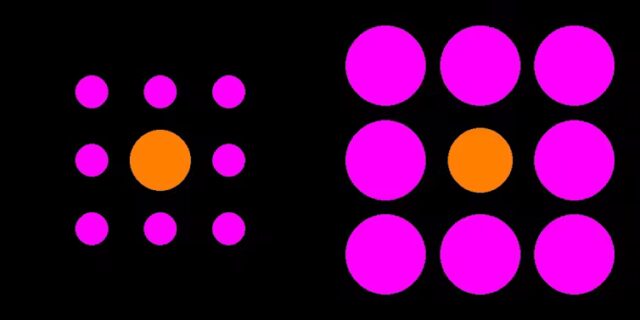Our previous work to compare mathematics and social scientists’ decisions (we work in universities, so we sometimes study our colleagues). Social scientists, such as psychologists, See theh More tightly
Researchers like us have to take into account many factors. Perhaps this makes us even more sensitive than context, even as we see things. But too, it may be that your visual style can affect what you choose to study. One of us (Martin) went to the university to study physics, but left for a psychology degree. As this happens, the idea of his illusion is much stronger than usual.
Training your illiterate skills
Despite all these individual differences, researchers have always thought that you have no choice but to see if you see it. Our recent research challenges this idea.
Radiologists need to be able to quickly find important information in medical scans. Doing so often means that they have to ignore the details around them.
Radiologists provide large -scale training, so does it better see the illusions? We found. We studied more than 100 psychology and 44 radiologists compared to medical students.
Below is a picture of us. Orange’s circle on the left is 6 % smaller from the right. In the study, most people saw it big.

There is another image here. Most non -radiologists still see the left on the left. Still, it is 10 % smaller. Most radiologists got this right.
It was not unless the difference was about 18 %, as shown in the icon below, that most non -radiologists were seen by illusion.
Radiologists are not completely safe from illusion, but they are very sensitive. We just saw the radiologists who started training. Their idea of their illusion was not better than usual. It seems that the high impression of radiologists is the result of their extensive training.
According to The current ideas of skillIt should not be. For example, being a chess specialist makes you better in chess but nothing else. But our results show that being an expert in medical image analysis also improves you through some optical deception.
There is a lot left to find out. Perhaps the most interesting possibility is that optical illusion training can improve radiologists’ skills at their work.
So, how can you learn to see through the illusion? Only five years of easy medical school, then seven more radiology training and this skill can be yours.
Martin DohthiAssociate Professor in Psychology, University of East English And Radosla WinzzaLecturer in behavioral science, Central Lancashire University. This article has been re -published Conversation Under the Creative Affairs License. Read Original article.

